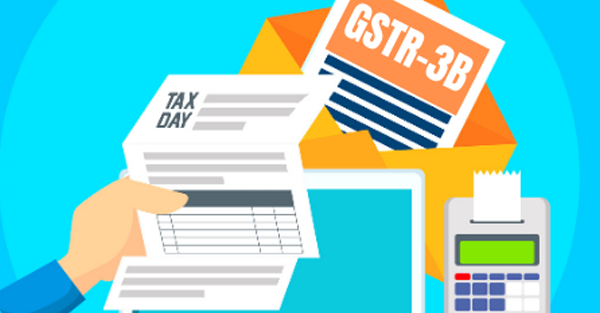Introduction
Input Tax Credit (ITC) plays a crucial role in the GST regime by reducing the tax burden on businesses. However, not all ITC is eligible for claim. Certain ITC amounts are either blocked under Section 17(5) of the CGST Act or
considered ineligible due to non-compliance with GST provisions. Proper treatment of Blocked and Ineligible ITC during the filing of GSTR-3B ensures compliance and prevents penalties.
| Category | Description | Examples | Reporting in GSTR-3B |
| Blocked ITC (Section 17(5)) | ITC that cannot be claimed as per CGST Act. | – Motor vehicles (except certain cases) – Food, beverages, and outdoor catering – Membership fees (clubs, gyms, etc.) – Works contract services – Goods lost, stolen, or given as gifts | Table 4(B)(1) – Reversal under Section 17(5) |
| Ineligible ITC (Non-Compliance) | ITC that cannot be claimed due to GST violations. | – ITC on unpaid invoices by suppliers – ITC claimed after the due date (Sec. 16(4)) – ITC on purchases from composition taxpayers – ITC on personal/non-business expenses | Table 4(B)(2) – Other reversals |
| ITC on Wrong Place of Supply | ITC claimed where the place of supply does not match the recipient’s state. | – Inter-state purchases claimed by an unregistered taxpayer – Incorrect state reported in invoice | Table 4(D)(2) – Ineligible ITC due to Place of Supply |
| Eligible ITC | ITC that is claimable as per GST rules. | – ITC on imports – ITC on domestic purchases – ITC received from ISD – ITC under Reverse Charge Mechanism (RCM) | Table 4(A) – ITC Available |
| ITC Reversed & Reclaimed | ITC that was reversed earlier but can now be reclaimed. | – ITC reversed due to non-payment within 180 days but later paid | Table 4(D)(1) – ITC reclaimed |
| Net ITC Available | The final ITC that can be used after reversals. | – Total Eligible ITC minus Blocked/Ineligible ITC | Table 4(C) – Net ITC Available |
Understanding Blocked ITC
Blocked ITC refers to the credit that is not available for claim as per Section 17(5) of the CGST Act. Some common examples include:
- Motor vehicles (except for specific cases like transportation, training, or further supply)
- Food, beverages, and outdoor catering (unless for an obligation under law)
- Membership fees of clubs and fitness centers
- Works contract services (except where used for further supply of works contract service)
- Goods lost, stolen, destroyed, or disposed of as gifts or free samples
Understanding Ineligible ITC
Ineligible ITC covers credit that is not claimable due to non-compliance with GST rules, including:
- ITC on invoices where GST has not been paid by the supplier
- ITC availed beyond the time limit under Section 16(4)
- ITC on purchases from composition taxpayers
- ITC availed on non-business or personal expenses
ITC on Wrong Place of Supply
ITC is also ineligible if claimed on invoices with an incorrect place of supply. If a taxpayer mistakenly claims ITC on inter-state transactions where they are not registered or where the place of supply does not match the recipient’s state, the ITC becomes ineligible. Businesses must ensure the correct place of supply while filing GSTR-3B to prevent unnecessary reversals and penalties.
Treatment in GSTR-3B
Step 1: Identification and Segregation
Before filing GSTR-3B, businesses must segregate eligible and ineligible ITC from the total input tax. The following classifications should be made:
- Total ITC as per books
- Eligible ITC available for claim
- Blocked ITC as per Section 17(5)
- ITC ineligible due to non-compliance
- ITC ineligible due to wrong place of supply
Step 2: Reporting in GSTR-3B
In GSTR-3B, ITC needs to be reported in Table 4 as follows:
A. ITC Available (Whether in Full or Part)
This section includes:
1. Import of Goods: ITC on imports should be claimed based on the Bill of Entry and payment of IGST.
2. Import of Services: ITC can be claimed on services received from foreign suppliers if tax is paid under Reverse Charge.
3. Inward Supplies Liable to Reverse Charge: Includes purchases from unregistered persons or specified reverse charge transactions.
4. Inward Supplies from ISD: ITC received from an Input Service Distributor (ISD) should be reported.
5. All Other ITC: Regular ITC from domestic purchases appears here.
Action: Ensure only eligible ITC is reported in this section and reconciled with GSTR-2B.
B. ITC Reversed
1. As per Rules 38, 42, 43 & Section 17(5):
- ITC reversal under Rule 42 (common input goods/services for exempt & taxable supplies).
- ITC reversal under Rule 43 (capital goods used for both exempt & taxable supplies).
- Blocked ITC under Section 17(5) (e.g., motor vehicles, club memberships, gifts, etc.).
2. Others:
- ITC reversals not covered above (e.g., incorrect ITC claim, excess ITC claimed in past returns).
Action: Businesses must ensure correct reversal of ITC to avoid incorrect reporting.
C. Net ITC Available (A – B)
This is the final ITC available after reversals. Only the net eligible ITC should be used for offsetting GST liability.
Action: Ensure correctness by reconciling with books and GSTR-2B.
D. Other Details
1. ITC Reclaimed (Earlier Reversed under 4B(2)):
- If ITC was reversed in an earlier period but is now eligible (e.g., payment to supplier made within 180 days), it should be reclaimed here.
2. Ineligible ITC under Section 16(4) & ITC Restricted Due to Place of Supply Rules:
- ITC under Section 16(4): ITC not claimed within the time limit (30th November of the following financial year).
- Place of Supply (PoS) Rules: ITC claimed on an invoice where the PoS is different from the recipient’s state.
Action: Any ITC reported here should not be used for tax payment.
Step 3: Reconciliation with Books
After reporting ITC in GSTR-3B, businesses should reconcile ITC with books of accounts and GSTR-2B to ensure correct claim and avoid future notices from GST authorities.
Common Mistakes to Avoid
- Claiming ITC without verifying GSTR-2B
- Not reversing blocked ITC in Table 4(B)
- Incorrect classification of ITC ineligible due to non-compliance
- Claiming ITC on invoices with the wrong place of supply
- Failure to maintain proper records for ITC claims
Conclusion
Proper treatment of Blocked and Ineligible ITC is essential to maintain GST compliance and avoid penalties. Businesses should carefully analyze their ITC, report accurately in GSTR-3B, and conduct periodic reconciliations to ensure error-free filings.
Stay compliant, stay ahead in GST!
If you have any questions, please don’t hesitate to reach out to us using the contact details available on our website or the information provided below.
Regards,
CA. Akshay
Partner
Mobile: 8527238625
Email: infodelhi@corporategenie.in


 India
India  Canada
Canada

